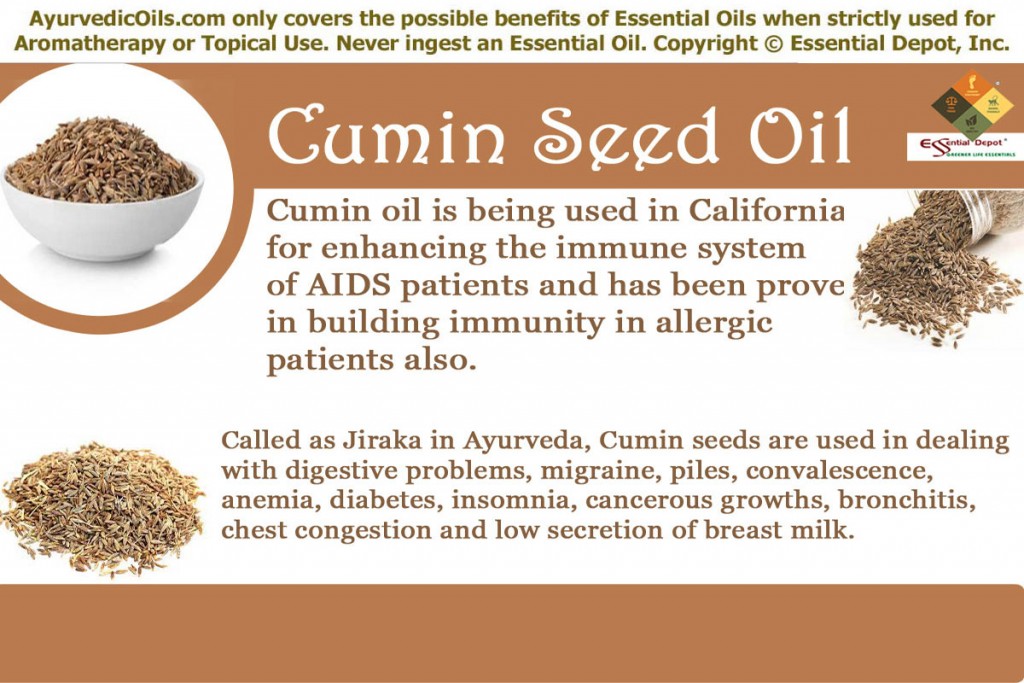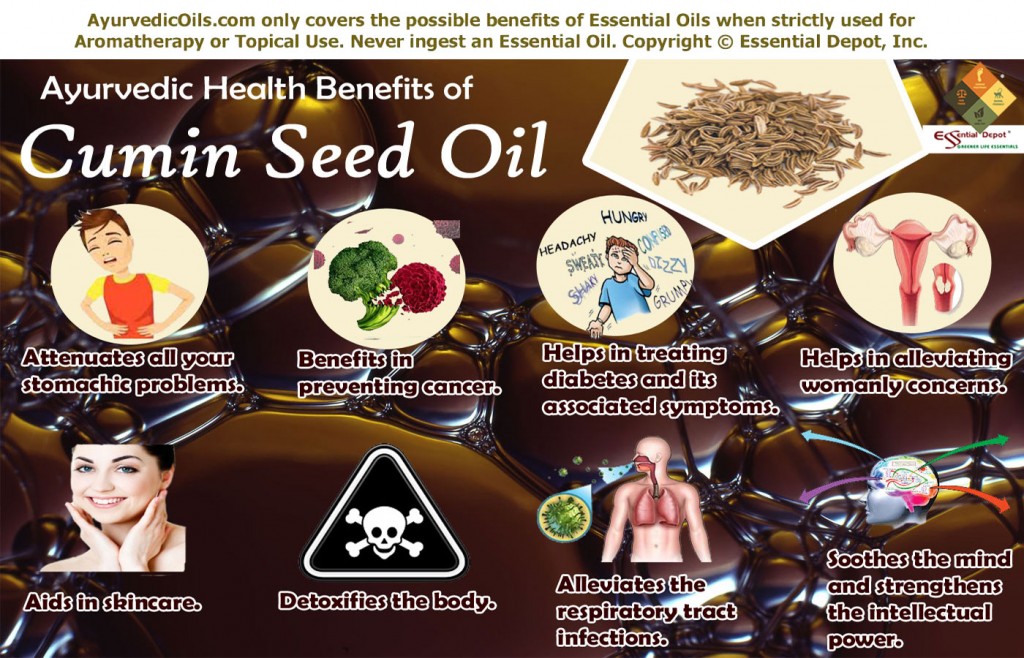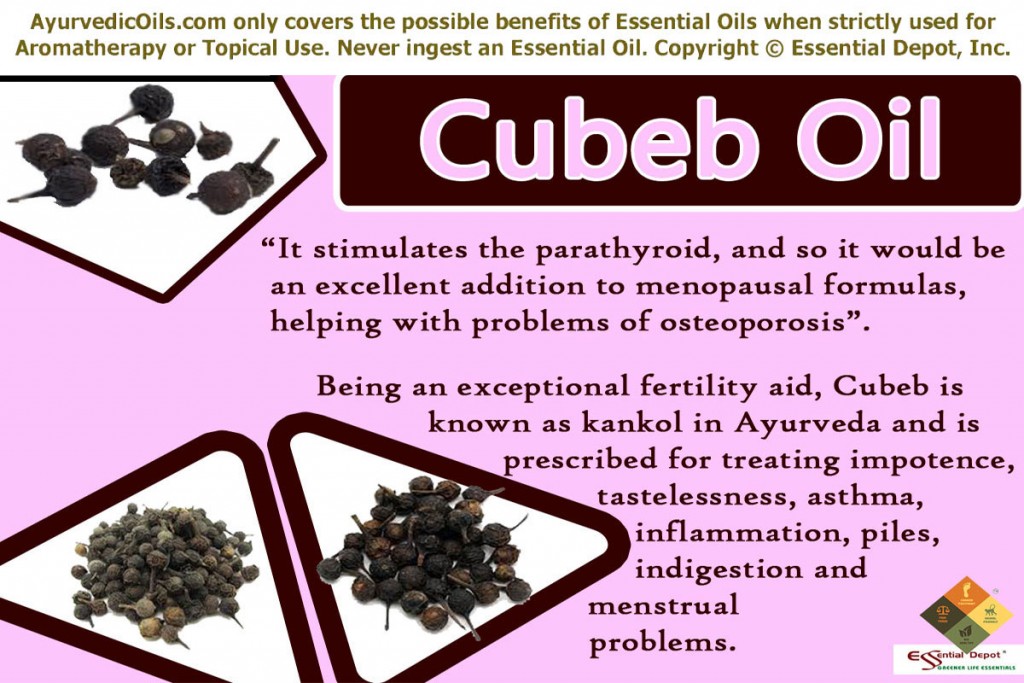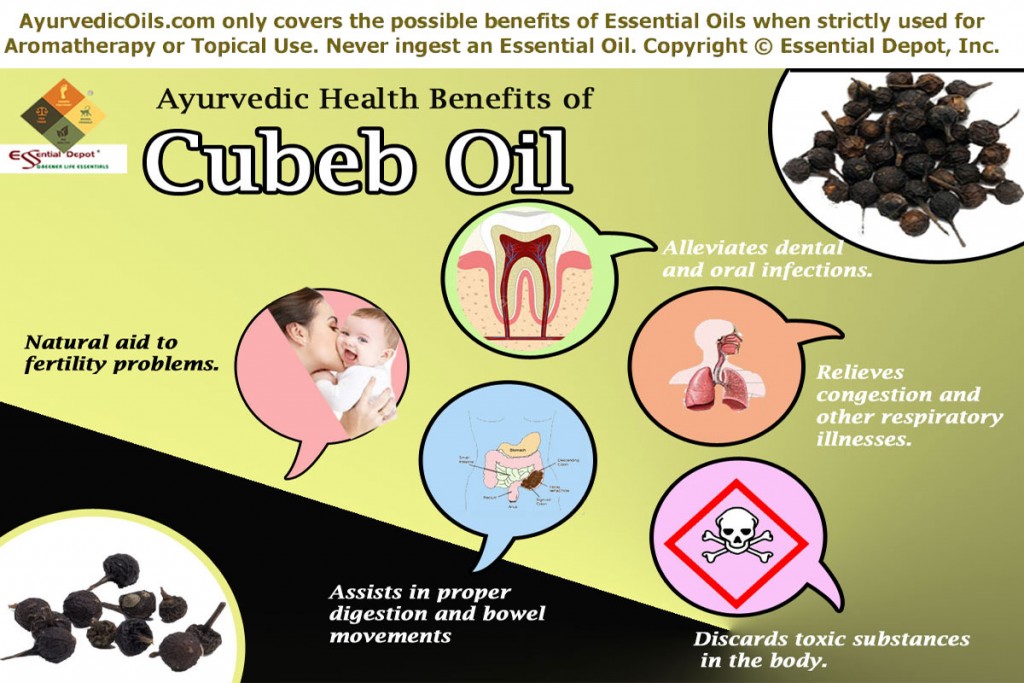Cumin oil is being used in California for enhancing the immune system of AIDS patients and has been proven in building immunity in allergic patients as well.
 Celebrated as one of the most potent digestive aid in India, these cute little seeds stand special among the many natural condiments used since the ancient times, for it always blend with the food, making it extraordinarily delicious with its distinct earthy aroma and enticing flavor.
Celebrated as one of the most potent digestive aid in India, these cute little seeds stand special among the many natural condiments used since the ancient times, for it always blend with the food, making it extraordinarily delicious with its distinct earthy aroma and enticing flavor.
Ayurveda beckons Cumin as Jiraka, Ajaji and Ajajika. Botanically called as Cuminum cyminum, Cumin belongs to the Apiaceae along with its other siblings including Parsley, Caraway and Dill. Apart from its widespread culinary uses, Cumin seeds and its essential oil are being used in addressing digestive problems, migraine, low secretion of breast milk, piles, convalescence, poor blood circulation, anemia, skin disorders, insomnia and respiratory infections.
Purchase Cumin Seed Essential Oil – 4oz – CLICK HERE
Historical importance of Cumin:
The most notable accolade to sing the glory and historical reference of Cumin seed is its use in the mummification process that dates back to 5000 years. Biblical references clad Cumin seed as one of the best offering to God. Moreover it was crowned as a tithing spice and valued as a currency used in exchange for trade.
Being a native of the Mediterranean region, Cumin seed has found its application and cultivation throughout the world for its ubiquity, low cost, culinary and medicinal properties. Best known for its ease in cultivation, Cumin seed is a part of the traditional cooking.
Cumin is the second most popular spice in the world; it is often used in culinary as a substitute for black pepper which was highly expensive. Being the only medicinal part of the plant this aromatic herb has been used since the primordial times as the best aphrodisiac, for which loafs of bread seasoned with Cumin seeds along with chicken were served for newly married men.
As a common subject of the works of Hippocrates, Pliny and Dioscorides, Cumin was used vastly in Greece and Rome for its bactericidal, culinary and stomachic qualities.
Few sources state that this herb had the ability to improve skin complexion. Cumin was also considered as a spice of avarice and greed, for which the Roman emperors Marcus Aurelius and Antoninus Pius were nicknamed as Cumin.
The Talmuds used Cumin seeds in the circumcision ritual to arrest bleeding and prevent infections. Cumin seed oil and cumin seed powder are still an effective digestive aid that helps one to get rid of flatulence, indigestion and constipation. It is an active component of the Jeera water in India that grants instant refreshment and makes one to feel warm and active from within.
Chemical constituents and therapeutic properties of Cumin seed oil:
Cumin seed oil consists of numerous chemical compounds and the major ones among them are aldehydes, monoterpenes hydrocarbons and oxygenated sesquiterpenes that include cumin aldehyde, α-pinene, safranol, linalool, thymol, myrcene, limonene, 1-8-cineole, p-menth-3-en-7-ol, p-mentha-1, 3-dien-7-ol , caryophyllene , β-bisabolene , β-pinene, P-cymene, β-phellandrene, D-terpinene, flavonoids, cuminyl alcohol and β-farnesene.
Cumin seed oil also serves as a rich source of iron, copper, manganese, magnesium, phosphorous, calcium, carbohydrates, starch, Vitamin C, A & B1 and glows as a rich dietary fiber.
It is often employed for its anti-oxidant, anti-inflammatory, anti-spasmodic, anti-microbial, anti carcinogenic, anti-diabetic, antitussive, stomachic, carminative, diuretic, stimulant, appetizer, galactogogue, anti-mutagenic, emmenagogue, antiseptic, astringent, detoxifier, anti-tumor, aphrodisiac, nervine and tonic properties.
Ayurvedic Health Benefits of Cumin Seed Oil:
Ayurveda is a 5000 year old medical practice from India and the word ‘Ayurveda’ means ‘Knowledge of life’, which insists on awareness about one’s life for leading a hale and hearty living.
Unlike other healing methodologies, Ayurveda aims at gifting mankind with holistic health by preventing illnesses and paving way for healthy aging and longevity. The National Institute of Health rightly quotes this as “The aim of Ayurvedic medicine is to integrate and balance the body, mind, and spirit. This is believed to help prevent illness and promote wellness.”
The ancient Ayurvedic texts namely Charaka Samhita and Sushruta Samhita, written by the renowned Ayurvedic physicians Charaka (the Father of Medicine) and Sushruta (the Father of Surgery) throw light on all kinds of treatment methodologies and healing techniques used in Ayurveda. These texts even talk about complex surgical treatments including plastic surgery and caesarean deliveries even before the evolution of machines or medical equipments.
Ayurveda conquers the world of medicine for thousands of years with its natural remedies including essential oils or the life force of plants, herbs, yoga, meditation, prayers, Ayurvedic routine and other Ayurvedic therapies like Panchakarma (Cleansing or Detox treatment) and Abhyanga (the art of Ayurvedic massaging).
These remedies reveal the trust of Ayurvedic philosophy on the power of Mother Nature, which is made up of five vital elements namely earth, water, fire, air and space.
This traditional system believes that everything on earth is a part of nature and is built up with the same five elements of nature. Every person on earth is a unique creation with a unique individual constitution that is made up of 3 dynamic biological forces known as doshas. They are vata, pitta and kapha. Each dosha is a combination of the 5 elemental forces of nature.
Pitta is a symbol of fire and water and is held responsible for metabolic activities and body temperature. Vata is a combination of air and space and is in charge of respiratory functions, circulation and nervous functions of the system.
Kapha is a representation of earth and water and is accountable for physical build up, reproductive health, sustenance and movement of fluids in the body. According to Ayurveda, balance between these doshas symbolizes health and imbalance causes illnesses.
Ayurvedic therapies are prescribed in such a way to correct the imbalance of doshas and to be in harmony with nature. Cumin seed and its essential oil is known to decrease kapha and vata doshas and increase pitta dosha, which makes this oil as an effective natural remedy for treating digestive disorders, respiratory illnesses, nervous problems and reproductive problems.
The Ayurvedic health benefits of Cumin seed oil are:
 1. Attenuates all your stomachic problems:
1. Attenuates all your stomachic problems:
Cumin essential oil is known for its pitta-enhancing properties that are responsible for metabolism and body temperature. With the Sanskrit name Jiraka, which literally means digestion, Cumin seed oil enhances the metabolism and alleviates all kinds of digestive disorders. Indians drink Jeera water (Cumin seeds boiled in water) for augmenting their digestive potential.
The presence thymol, a natural stimulant in Cumin oil along with its rich iron content induces and regulates the secretion of bile and other digestive and pancreatic enzymes that assist in easing digestion, absorption of essential nutrients and excretion. The carminative properties of this oil helps in relieving flatulence with ease and comfort along with preventing the formation of gas.
The process of digestion starts in the mouth. Cumin aldehyde, the prime aromatic compound of Cumin seed oil triggers the salivary glands in the mouth that results in the proper secretion of saliva with good PH value. It also inhibits the growth of harmful microbes.
The anti-fungal and antibacterial activity of Cumin seed oil is found effective in preserving food items, destroying human and animal pathogens and in protecting plants from hazardous micro-organisms in the soil.
Using 3 drops of Cumin oil blended with 1.5 ml of sesame oil for massaging your abdomen, aids in stimulating Agni or the digestive fire that helps in alleviating flatulence, indigestion, dyspepsia, diarrhea, intestinal spasms, gastrointestinal infections, colic in infants, nausea and morning sickness due to indigestion.
You can also add 2 drops of Cumin oil in warm bathing water or in diffuser for enhancing your appetite and soothing your stomachic disorders.
2. Benefits in preventing cancer:
Cancer has now turned as an unavoidable life threat for the whole of humanity. The presence of flavonoids, monoterpene alcohols and linalool make Cumin seed oil an effective extinguisher of free hydroxyl radicals and lipid peroxides that play a major role in oxidation that initially targets in the single cellular death and when left unattended it may lead to fatality.
With its rich antioxidant property, Cumin seed oil is widely employed in preventing cancer and other health hazards caused due to cellular oxidation. A 2011 study on the numerous healing attributes of Cumin seed as published in PubMed states that no colon tumors were observed in the rats provided with a dietary supplementation of Cumin, in spite of being subjected to a colon specific carcinogen.
Along with this, Cumin seed oil decreases the activity of β-glucuronidase and mucinase enzymes that functions in liberating toxins and enhancing the hydrolysis of protective colonic mucus, either of which leads to the onset of colonic cancer.
Furthermore, Cumin seed is also an effective anti-mutagenic, apoptotic, anti-proliferative and anti-tumor herb enriched with the presence of Vitamin C, Vitamin A and monoterpenes that tones down the carcinogenic metabolism by increasing the activity of the corresponding enzymes.
Massaging your body with 20 drops of Cumin oil mixed with 10 ml of Virgin Olive oil helps in lessening the effects of free radicals and curbs the spread of cellular damage by penetrating through the skin and reaching every cell in the system.
3. Helps in treating diabetes and its associated symptoms:
Cumin seed oil has anti-diabetic and anti-glycating properties that assists in treating diabetes and its other associated symptoms. Certain studies on this regard state that rabbits when treated with Cumin seed oil exhibited a significant reduction in the blood glucose level and inhibited blood urea nitrogen along with inducing pepsin digestion and improvement in insulin and glycogen in tissues.
The anti-glycating property of Cumin seed oil delays the onset of cataract due to diabetes. It also lowers the cholesterol, fatty acids, triglycerides and phospholipids thus creating a protective shield on the liver, pancreas and the kidneys by lowering the level of toxic substances.
Inhaling the healing aroma of Cumin oil by adding 2 drops of this oil in burner, vaporizer or diffuser helps in controlling blood sugar levels, which is done when the aromatic molecules of this oil reach the limbic system and pituitary gland, the control center of the body by passing on the therapeutic properties of this oil to the entire system.
4. Helps in alleviating womanly concerns:
As a natural stimulant, Cumin seed oil induces and regulates the secretion of hormones and enzymes especially in women. Flavonoids and monoterpenes present in this oil have an estrogenic effect that corrects hormonal imbalances and cures blocked menses and irregularities in the menstrual cycle.
It increases the estrogen levels and strengthens the uterus and ovary which in turn has a positive effect in increasing the immunity.
The phytoestrogens in Cumin seed oil strengthens the bones by reducing the urinary calcium excretion and increasing the calcium content in the body thus helping in dealing with osteoporosis after menopause.
For dysmennorhea or painful menses, delayed or blocked menstruation and menopausal discomforts, massage your thighs, lower abdomen and genital part with 4 drops of Cumin oil mixed with 2 ml of coconut oil. Using 2 drops of Cumin oil in hot or cold compress is also a good idea in alleviating pain and treating hormone fluctuations.
Cumin seed and its essential oil have thymol, which acts as an effective stimulant in inducing the secretion of milk and increasing the quantity and quality of mother’s milk thus proving beneficiary for both the lactating mother and the baby. As a natural source of iron, manganese and zinc, Cumin seed oil helps in transporting oxygen and nutrients to all parts of the body through blood and increases the immunity power of women.
5. Aids in skincare:
Cumin seed oil has an age old history of being applied on wounds, acne, boils and stitches for its antiseptic quality and quick healing attribute. Antioxidants play a vital role in maintaining the complexion and beauty of the skin. Cumin seed oil is rich in antioxidant with the presence of monoterpene alcohols, linalool and flavonoids.
Moreover it is rich in Vitamin A and C, which along with the antioxidants helps in blocking the pores and strengthening the roots of the cellular tissues. It is for these strong reasons, Cumin seed oil is used in skin care for enhancing skin complexion and in oral care for strengthening teeth and gums.
Mix 2 drops of Cumin seed oil with 1 ml of jojoba oil or your mild skin care cream and lotion and apply it on the skin for improving your complexion, fighting against aging symptoms like wrinkles, healing wounds and curbing the growth of microbes, which causes acne and other skin infections.
6. Detoxifies the body:
Being a natural diuretic, Cumin seed oil aids in increasing the quantity and frequency of urinating. It is for this important reason, it is often recommended for people with high pressure and rheumatism.
It aids in cleansing the system by reducing the bad cholesterol, fatty acids, urea and acid levels in the body. Cumin seed oil serves as a protector of kidneys and liver as it helps in effective excretion of toxins and poses less pressure on these organs.
With its kapha-reducing and pitta-increasing properties, Cumin oil increases the heat in the body and results in discharging water retention and fluid deposits along with fostering active metabolism.
Its stomachic property attributed by pyrazine and Cumin aldehyde helps in treating constipation and piles. Add 4 drops of Cumin oil in warm bathing water or massage your body with 20 drops of Cumin oil mixed with 10 ml of coconut oil for effective detox cleansing.
7. Alleviates the respiratory tract infections:
Cumin seed oil helps in treating common cold, bronchitis, asthma, coughs and other respiratory tract infections, which are caused by excess of kapha dosha causing phlegm and mucus deposits to block the nasal passages, bronchial tubes and the respiratory tract.
Being an antimicrobial agent it kills the harmful viruses and bacteria that cling onto the respiratory tract and its kapha-lowering and expectorant qualities help in loosening even thick deposits of mucus and phlegm thus relieving from cold, cough, bronchitis and other respiratory infections.
Add 2 drops of Cumin oil in steam inhalation followed by a warm and gentle massage with the decongestant ointment blended with 2 drops of this oil on the chest, throat and back can help in relieving nasal congestion, cough, sore throat and breathing difficulties.
8. Soothes the mind and strengthens the intellectual power:
Cumin seed oil is a natural relaxant and with its unique aroma, this oil instills a calming effect on the mind and it acts as an effective stress reducer. The presence of rich nutrients and other therapeutic chemical constituents make Cumin seed oil a powerhouse of energy that reinforces your mind and relaxes your body and results in sound sleep.
Studies have also proved that Cumin seed oil possesses anti-stress and memory enhancing activity, making it a must for students with poor memory and weak intellectual skills. 2 drops of Cumin seed oil added to your diffuser or vaporizer or to a tissue placed near your pillows helps in pacifying the mind, clarifying thoughts, clearing confusions and improving memory skills.
Other health benefits of Cumin Seed Oil:
Cumin seed oil is also used in treating anemia, insect bites and in the manufacturing of perfumes and disinfectants.
Disclaimer:
This information is only for the purpose of education and is not intended to treat, prevent or diagnose any health condition or replace any prescribed medicines or professional medical advice. We are not medical professionals and we share this information only with the interest in spreading the richness of Ayurveda, the oldest traditional healing methodology.
Never take essential oils internally and dilute essential oils before topical use as pure and organic essential oils are highly concentrated substances and may cause harm if used directly on the skin. Always consult your Ayurvedic practitioner/healthcare professional before choosing the appropriate essential oil that is suitable for your medical condition and unique individual constitution.
Cumin Seed Oil Possible Skin Issues:
Greener Life Diamond – Bio-Healthy Score => 3 Possible Skin Issues:
See => http://www.essentialdepot.com/GreenerLifeDiamond.html
The essential oil of Cumin is said to have phototoxic effects, which may lead to allergic reactions, mild skin irritation, sunburn, blisters and hyperpigmentation when the skin is exposed to direct light from the sun with increased use of dermal application of Cumin oil (more than the safe level) for up to 12 hours after use. The major chemical constituents held responsible for the adverse skin effects of Cumin oil are Cuminaldehyde and certain other phenols.
According to the International Fragrance Association, the safe and maximum level of dermal use of Cumin oil is 0.4%. Photosensitivity and other associated skin defects are said to occur when the safe limit of Cumin oil is exceeded and is used on the parts of the skin that are exposed to visible sunshine. This is applicable only for leave-on products like creams, massage blends, ointments and lotions and not for rinse-off products like bath preparations.
Cumin oil has the status of Generally Recognized as Safe by the FDA. The Research Institute of Fragrance Materials (RIFM) reports about 5% No-observed-adverse-effect-level (NOAEL) for phototoxic effects on volunteers for Cumin seed oil.
Never use Cumin oil in an undiluted manner and ensure that you always blend essential oils with appropriate carrier oils as pure essential oils are highly concentrated and might cause adverse effects on the skin, eyes and the system.
The National Association For Holistic Aromatherapy (NAHA) states Cumin oil as a photosensitizer and dermal irritant thus it is always recommended to use in a diluted form and should be avoided on damaged skin, eyes, allergic skin conditions and inflammatory parts.
Cumin seed oil is prescribed safe only for topical applications and not for internal use. Certain animal studies have concluded that overdose of Cumin seeds proved anti-fertility activity. Cumin seeds, due to their emmenagogue properties were proved to exhibit mild abortifacient activity, when tested on rats with the gestational age of 8 to 12 days with aqueous cumin extracts.
These seeds were proved to cause anaphylactic reactions on overdose. Caution should be taken in using Cumin oil, if you have a history of irritation or inflammation of the kidneys. It is also said that Cumin seeds may also cause low blood sugar so it is best to avoid the use of Cumin oil prior to 2 weeks before and after any surgical conditions.
Kindly avoid Cumin oil if you are pregnant or getting ready to conceive as Cumin oil has abortifacient and anti-fertility effects, when used more than the prescribed level can end up in miscarriage, stimulate menstruation or premature labor and might delay the chances of getting pregnant.
Reference Links Substantiating the Possible Skin Issues of Cumin Oil:
- Cumin, American Herbal Products Association’s Botanical Safety Handbook, Second Edition by Zoe Gardner, Michael McGuffin
- Essential Oil Safety: A Guide for Health Care Professionals By Robert Tisserand, Rodney Young
- Cumin by Drugs.com
- Cumin side effects and safety by WebMD
- Safety Information on Essential Oils by the National Association For Holistic Aromatherapy
Thought for the day:
Joy in looking and comprehending is nature’s most beautiful gift. -Albert Einstein
Suggested Reading:
- Ayurveda & Aromatherapy: The Earth Essential Guide to Ancient Wisdom and Modern Healing by Dr. Light Miller, Dr. Bryan Miller
- Fragrance & Wellbeing: Plant Aromatics and Their Influence on the Psyche by Jennifer Peace Rhind
- Cumin & Coriander: A celebration of everyday North Indian cooking by Archana Nirad
- Cumin (Cuminum cyminum): Production and Processing from Science Publishers
- Curry Leaves and Cumin Seeds: A Healthier Approach to Indian Cooking by Jeeta Gandhi
Reference Links:
- Cumin by Wikipedia
- Cumin from Ayurveda and Aromatherapy by Light Miller and Bryan Miller
- Cumin (Cuminum Cyminum) as a potential source of antioxidants by Muhammad Nadeem and Asad Riaz from the National Institute of Food Science and Technology, University of Agriculture, Faisalabad, Pakistan.
- A 2011 study on Cuminum Cyminum and Carum Carvi by R.K.Johri as published in PubMed.
- A 2009 article on Delay of diabetic cataract in rats by the antiglycating potential of Cumin through modulation of alpha-crystallin chaperone activity.
Save



